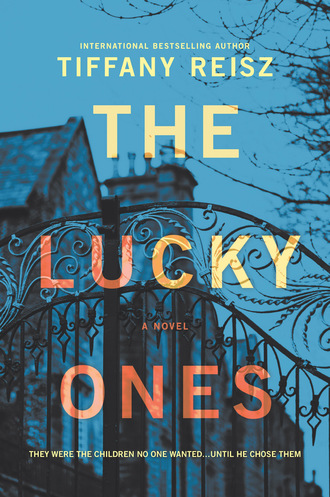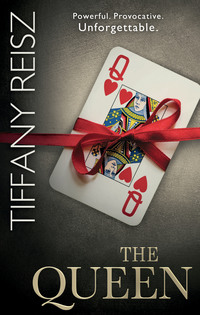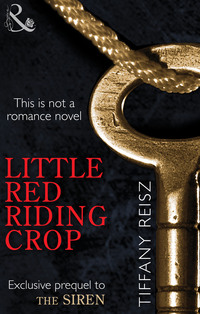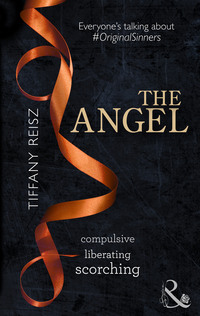“That’s not going to happen in this house,” Miss Whitney said with a sigh.
“No word on the father?” he asked.
“No father on the birth certificate. Sole living relative is a great-aunt who would take her if nobody else turns up. But she’s seventy, lives in Indiana, and she’s been sick.”
The bearded man harrumphed. Allison hadn’t ever met her great-aunt, a lady named Frankie who lived really far away, though she’d seen Christmas cards from her.
“I gotta figure something out here,” Miss Whitney said. “Allison weighed forty-seven pounds when she got here. Yesterday she weighed forty-two. One month.”
The bearded man harrumphed and whistled this time.
“Let me talk to her,” he said.
“You are talking to me,” Allison said.
“She’s very bright,” the bearded man said to Miss Whitney.
“Told you so. Reads on a fifth-grade level. Eats like a toddler.” Miss Whitney patted Allison on her knee. “Sweetheart, this is a good friend of mine. Vincent Capello. He’s a brain surgeon. We used to work together at a hospital in Portland. He was nice enough to come all the way out here to check on you. Brain surgeons usually don’t make house calls, so you should feel very special.”
“She is very special,” the man said. Allison grinned, happy to have someone being nice to her for the first time that day. She was still sitting on the bathroom counter. She wasn’t tall enough to be able to jump down without help yet and the bearded man, the doctor, had left her up there.
Miss Whitney left her alone again with the man who didn’t do anything at first but tug his beard hairs.
“Do you like it here, Allison?” he asked.
Allison’s mother had taught her not to complain, ever. Not so much out of politeness but because it never helped anything.
“I like Miss Whitney,” Allison said.
“She is a very nice lady.” The man nodded in agreement. “Do you like the girls here?”
Allison didn’t answer.
“Allison? Do you like the other girls here?”
“I’m not supposed to say.”
“Why not?” The bearded man furrowed his brow.
“If you can’t say something nice, you shouldn’t say anything at all.”
He laughed.
“I guess I have my answer. You have quite the moral compass, young lady,” he said. “Adults could learn from you.”
She smiled broadly. She didn’t know what a moral compass was, but she knew a compliment when she heard it.
“Miss Whitney says you aren’t eating. Want to tell me why?” he asked.
Allison had dropped her chin to her chest. “Not hungry.”
“Does your stomach hurt?” he asked.
She shook her head.
“No?” he said. Allison stopped talking and hoped he would, too.
“Have you ever seen the ocean?” he asked her. That was not the question she’d been expecting.
“No.”
“You know what it looks like?”
“I saw pictures,” she said.
“We can do better than that.” That’s when he plucked her off the counter and set her on her feet. He took her by the hand and led her out to the back porch. There was nothing back there but a slab of concrete where a few old chairs sat looking at a yard of scrubby dirt backed by a hill of scrubby dirt. Everywhere she looked out there she saw nothing but scrubby dirt.
“See all that?” the doctor said, pointing from one end of the hill to the other.
“I see dirt,” she said.
“Okay. Now imagine everything you see is water,” he said.
Allison’s eyes went wide. She stared at the dirt and in her mind’s eye it started to change color from brown to gray to blue. The hills turned to waves, the raw wind became an ocean breeze and the concrete slab they stood on became a raft, bobbing and floating on an endless sea.
“I see it,” she said, grinning up at him.
“That’s the ocean,” he said.
“It’s lovely,” she said.
“Lovely? Yes, it is lovely, isn’t it?” he said, laughing. “That’s where I live, you know. On the ocean.”
“In a boat?”
He laughed again. “No, in a house. But the house is right on the beach and you can see the ocean from almost all the rooms.”
Allison couldn’t imagine that. She never even looked out the windows in this house. Nothing to see but dirt out the back windows and other sand-colored houses out the front.
“Can you swim in it?”
He stroked his beard. “You can swim in it. Might not want to. It’s kind of cold, but my son swims in it a lot.”
“You have a son?”
“I have two sons,” he said, smiling with pride. “And a daughter. They’re all kids like you. Some bad things happened in their lives so now they live with me in my house by the ocean.”
“Is it pretty?”
“The ocean?”
“The house.”
“If I told you it looked like a dragon, would you believe me?”
“No,” she said, laughing. That was the silliest thing she ever heard. “Dragons have wings. They have fire in their noses.”
“I promise it looks like a dragon.”
“You’re lying.”
“I’m not,” he said, and looked hurt. Then he grinned. She liked him so much when he smiled like that. “It’s a sea monster, I swear.”
“I know a water poem,” she said. “Do you want to hear it?”
“I want to hear your poem. Go for it.”
Allison recited for him.
“The sun was shining on the sea,
Shining with all his might:
He did his very best to make
The billows smooth and bright—
And that was odd because it was
The middle of the night.”
The man laughed heartily, a Santa Claus laugh, though he didn’t have a Santa Claus belly.
“That’s wonderful, Allison. Did you learn that in school?”
“I taught it to myself,” she said. That was true but she didn’t tell him why she’d taught it to herself. He’d probably laugh at her. “Can I come to your house and see the ocean for real?”
He squatted down low again so they were the same height, and while he wasn’t smiling with his mouth, he was smiling with his eyes.
“I would take you to see it,” he said, “but we have a rule at my house—everybody has to eat every single day.”
She gave that a good long think and then made up her mind.
“If I could see the ocean, I would eat,” she said.
“You promise?”
“I promise.”
“Every single day?”
“Every single day.”
“Good,” he said. He stood up again. “It’s a deal. Let’s go get you packed.”
“You mean it?” She couldn’t believe it, but she couldn’t believe this smiling man who wore pajamas to work would lie to her, either.
“I mean it.”
She raced to her room and found her suitcase. She didn’t have much to pack but one suitcase of her clothes and one bag of her books. Miss Whitney hugged her for a long time and kissed her cheek and told her she was a lucky little girl, because she was going to a wonderful home. Over Allison’s shoulder, Miss Whitney winked at Dr. Capello. When Allison started out the door, her small hand in Dr. Capello’s big strong hand, the other girls did nothing but wave half-heartedly from the couch where they sat playing a dumb video game on a too-small television.
The next thing Allison knew, she was sitting in the shiny smooth back seat of a big black car. A fancy car, fancier than any one she’d ever seen, and they were driving through the desert.
The big black car started up a hill, except it wasn’t a hill because hills weren’t nearly this tall. The man with the beard—he told her to call him Dr. Capello for now—told her it was actually a volcano named Mount Hood, but she didn’t believe him. She’d seen volcanoes in her science book. They had fire coming out of the top and they didn’t have trees everywhere. Then they were going down the other side of the big mountain and it was green, green, green everywhere she looked. The desert had turned into a forest so green and big she expected to see the Jolly Green Giant from the TV commercials wander onto the road and wave as they passed by. She was looking for him when something hit the car window hard enough to make her jump.
Water, a big fat drop of it.
“Just rain,” Dr. Capello said. “It’ll be raining at home, too.” That morning she’d woken up in a desert and now she was being taken to a place where it rained so hard it rained on the ocean.
“What’s your son’s name?” Allison asked.
“Which one?” Dr. Capello asked from the front seat.
“The one you said swims a lot.”
“That’s Roland. He’s twelve.”
“Is he nice?”
Dr. Capello kept his face forward but even looking at his profile she could see him smile.
“Let me tell you a little something about my son,” he said. “Roland Capello is the nicest boy in the world.”
* * *
“You’re smiling again,” McQueen said as he quickly dressed. Allison was still in bed, still naked. Let him leave her this way. Let this be the last image of her in his memory. “Told you that would help.”
She rolled onto her side and watched him put on his shoes.
“It helped, all right,” she said, and kept it to herself she’d been lost in the past the entire time he’d been inside her. He stood up.
“You’ll be okay?” he asked.
“I’ll be fine,” she said, already feeling the first stirrings of panic again. “I am fine.”
He bent over the bed to kiss her lips, and she gave him her cheek instead. He didn’t argue.
On his way out of her bedroom, he paused and looked back.
“Will you let me give you one piece of advice?” he asked.
“Do I have to?” she asked.
“I have been on this earth twenty years longer than you.”
“All right, tell me,” she said.
“When distant relatives contact you out of nowhere, it’s never good. Never. Never,” he said.
“Never?”
“Never. They either want money or they want something from you more valuable than money. The more I think about it, the more I think you should let me take that package down to the Dumpster.”
“This was my family, McQueen.”
“Was,” McQueen said. “Thirteen years ago and they haven’t contacted you in all that time? What’s the lady’s name who opened her box and screwed us all over?”
“Pandora?”
“Right.” He pointed at her and nodded. “Don’t be like her.”
“You’re telling me that’s Pandora’s padded envelope?” Allison asked.
“Pandora’s box sounds a lot better,” he said. “I have to go. Meeting in half an hour. You’ll at least think about it?”
“I’ll think about it,” she said. “Have a good life.”
“Yeah,” he said. “You, too, darlin’.”
She waited for him to leave. He didn’t.
“I never thought it would end like this,” he said, still looking at her. “I’ve been waiting six years for you to get shed of me. I thought any day now you’d tell me it was over, that you’d met someone, that you’d fallen in love.”
There was nothing safe Allison could say to that so she said nothing at all. McQueen waited. She kept her silence. He turned and then, at last, he was gone.
The door shut behind him and Allison sat on the bed, her chin to her chest. She didn’t cry. She wanted to but she couldn’t find her tears. What she wanted was a shoulder to cry on but she had none. The last shoulders in her life that weren’t her own had just walked out of the door.
She was twenty-five and college-educated. She had a roof over her head and she had money. She had food and she had clothes. She had a car and she had a letter of recommendation from the wealthiest man in the state she could use to get a job pretty much anywhere. She was fine. She was fine. She was fine. She told herself a thousand times she was fine.
She wasn’t fine.
She was alone.
Alone on her bed, she was a seven-year-old girl again, staring at the front door waiting for someone to come through it and knowing, deep down, that no one ever would.
Her worst nightmare. She was all alone.
Or was she?
Allison grabbed her robe, pulled it on and went into the kitchen again. She stood by the table, looking at the envelope. Allison told herself she was doing it to spite McQueen, but even she knew she wasn’t telling herself the truth.
She picked up the envelope and ripped it open.
Chapter 4
Inside the envelope she found a letter. Before she lost her courage, she unfolded it and read.
Dear Allison,
What to say? I’ll be quick. It’s been thirteen years and I know I should leave you alone but you’ve been on my mind a lot lately so I’ll get to the point fast. Dad is dying. Stage five renal failure. He doesn’t know I’m writing you. I didn’t want to get his hopes up. Fact is, he’s always missed you. Any time your name comes up, you can tell he’s full of regret. So am I. If you have it in your heart to come see him one last time, I’d be forever grateful. If you don’t, I don’t blame you. But if you do come, we’re still at the old house, and you’re sure to find one of us here day or night. Dad’s determined to die at home in his own bed, and we’re going to do the best we can to honor his wishes. If you want to come, all I ask is please come soon. He doesn’t have long.
There’s so much more I want to say to you, but I’ll end here. I’ve taken up enough of your time.
Roland
P.S. Found this while digging through the attic. If you read as much now as you used to, you probably want it back.
P.S. #2. I think about you every time it rains.
A humble letter, humble and polite. Humble and polite and adult. It wasn’t until Allison read that letter that it hit her: Roland Capello wasn’t sixteen anymore. What sixteen-year-old boy says things like “I’ve taken up enough of your time”? What sixteen-year-old boy talks about stage five renal failure? What sixteen-year-old boy knows anything about regret?
In her mind Roland had been forever sixteen. Tall and thin with long coltish legs covered in light blond hair. Board shorts, ripped and faded T-shirts, hair long enough he could tuck it behind his ears. Wraparound sunglasses like Bono’s, worn up on his head more often than over his eyes to hold his hair back.
Allison had to walk away from the letter for a few minutes simply to recover from the simple realization that as much time had passed for Roland as it had for her. She was thirteen years older and so was he. Roland’s birthday was in July. Roland, eternally lanky and lean and sixteen, was now thirty. A grown man. And here she was, twenty-five and freshly dumped. Adults now, both of them.
She stood in the middle of her living room and breathed through her hands. When she looked up, she was jarred by her surroundings—the gray walls and the mullioned window and the red sofa with its intricately carved oak arms. For a split second she’d been back in the past where the walls were floor-to-ceiling windows instead of floor-to-ceiling bookcases and outside the door there was ocean, not asphalt.
Still shaking, Allison walked back to the table and the package and the letter. Dr. Capello was dying. She wasn’t ready to deal with that yet so she turned her attention instead to whatever it was Roland had sent her. She pulled it from the padded envelope and removed the newspaper wrapped around it. And as soon as she saw it, tears scalded her eyes.
It was a book, of course, a battered old yellow paperback with a winged centaur on the cover and three children riding on its back. A Wrinkle in Time by Madeleine L’Engle.
“Oh, Roland...” she breathed. “You remembered.”
She sat down because she couldn’t stand anymore. Allison slowly flipped through the book. The pages had grown so soft and supple with age it felt like she was holding not a book but another hand in her hand. She opened it to the middle and pressed her face into the pages. She inhaled the scent of paper, ink and glue, and if they could make a perfume that smelled like old books, Allison would wear it every day of her life.
Roland had read this book to her. He’d read it to her the first night she’d spent at The Dragon. Not the whole thing, of course, but the first few chapters while she sat on his lap in the big blue reading chair with the other kids in the house gathered around on the rug, and she was in charge of turning the pages.
She’d loved him for letting her turn the pages.
And when Allison flipped to the final page of the book she wept openly. Written on the inside back cover in cornflower blue crayon were two words—Allison Capello.
“All right, this is how we do it,” Roland had said, taking her onto his lap and wrapping his big hand around her tiny hand. “C is an O and it’s trying to touch its toes but it can’t quite reach. And a is a little o with a line on the right side to keep it from rolling away. Make another little o for the p and put a long line on the other side. That’s its tail. P’s have straight tails. E’s have eyes. See? It’s looking at us and smiling. And l is a straight line. Do it again. Two l’s. And then one more o and there you go.”
Roland had taught her how to write her name. Not Allison Lamarque, the name she had been given, but Allison Capello, the name she’d coveted.
Allison put the book back onto the table next to Roland’s letter. She’d faced the existence of the letter and survived.
Now she had to deal with the content.
Dr. Capello was dying.
How was that possible? She’d joked that Dr. Capello was old but only to insult McQueen. He was never old to her. When they played frisbee on the beach, he played the hardest. When they cooked hot dogs on the campfire, he ate the most. He was always good for a piggyback ride up and down the halls. He didn’t read bedtime stories to them. They read bedtime stories to him. “One more page,” he would say, pretending to pout, and they’d roll their eyes and tell him it was time for him to go to sleep.
He worked, yes, but still made as much time for them as he could. He chose his cases carefully, picking the poorest and the sickest kids to bless with his talent. He didn’t have to work at all, as Dr. Capello had inherited a fortune from his parents, a fortune he spent helping kids, especially his own. Being taken away from that family had hurt worse than losing her mother because at seven, Allison hadn’t understood quite how long a time “never again” really was. By twelve, she was starting to have an idea. By twenty-five, she knew. And what she knew was “never again” was too damn long.
And now Roland wanted her to come back.
Allison knew she shouldn’t go. There were great reasons not to go back. Someone had tried to get rid of her and they’d succeeded. Maybe it was a prank, maybe it was something more sinister, but she couldn’t deny someone wanted her gone.
Then again...
She had fifty thousand dollars in cash on her kitchen table.
She had nothing to do and nowhere else to go.
She had freedom to go anywhere she wanted, which she hadn’t had since the first night she’d spent with McQueen.
McQueen would tell her not to go. He’d tell her it wasn’t safe, and he’d tell her she owed them nothing. He’d tell her not to open up an old wound. He’d tell her to take the money and run. And all that was good advice.
But.
McQueen had dumped her an hour ago, so why the hell should she give his opinion any weight? She shouldn’t. She wouldn’t. She’d do what she wanted to do and no one could stop her. There. Finally, Allison found one good reason to be happy that she was a free woman now.
After all...it would only take a few minutes, right? A few minutes, an hour tops. She could fly out to Portland, rent a car and make a vacation of it. She could drive the 101 all the way down the California coast if she wanted. She’d pop in to see Dr. Capello. It wouldn’t be fun, but it wouldn’t be awful, either. A one-hour visit to her childhood home followed by a nice long overdue vacation to celebrate her newfound freedom... Why not?
She knew seeing Dr. Capello again, and seeing him dying, would break her heart.
But as her heart was already broken, Allison had no excuse not to go.
So she went.
Chapter 5
It wasn’t until the wheels touched down at Portland International Airport that Allison realized she had never really believed she would go back. For two days, she’d been running on adrenaline, powered by the need to keep thoughts of the breakup at bay. Yet once she was in Oregon, the frenzy of energy disappeared and it took everything she had to disembark and collect her luggage. When the lady at the rental car counter asked her what brought her to Portland, Allison had been too dazed to think of a decent answer.
“I have no idea,” she said, and the lady looked at her with a mix of confusion and sympathy. She didn’t ask Allison any more friendly, prying questions after that.
The city was as green as she remembered and the rivers that bisected Portland still as blue. She took the highway to an exit that read Ocean Beaches and wondered how anyone managed to drive past that sign without immediately turning onto it and heading straight for the ocean. Very quickly the shining city faded behind her and lonely farms and hilly pastures popped up along the road. But soon enough those were gone, too, replaced first by patches of trees and then by full forests with branches so verdant and thick they formed an archway over the road, like soldiers forming an honor guard.
As she neared the coast, the clouds grew heavier, denser, stranger. The forests turned dark and eerie. In sunlight, the low-hanging mossy branches would look innocuous. At dusk, they looked like skeletal fingers pointing at her, the moss like skin falling off the bone.
Allison nearly jumped out of her seat when she banked around a curve and saw a fiendish grinning red-eyed face glowering at her from the side of the road. Once her heart slowed, Allison laughed at herself. During her flight to Portland, she’d reread A Wrinkle in Time. The villain in that book was a man with glowing red eyes who tried to get the three brave children to submit to him and allow him total control of their minds. She was glad McQueen wasn’t there to see her jump at the sight of someone’s stupid joke. Someone had nailed red safety reflectors to a tree trunk in the shape of eyes and a monstrous mouth. That was all.
When Highway 26 met the famous coastal 101, Allison turned south toward the cape. She’d spent the evening before online, reading everything she could about the Oregon coast and deciding where she would go and what she would see after she made her obligatory stop at The Dragon to pay her respects to Dr. Capello. It was a vacation, Allison told herself. No pressure. Just fun. If she were going to come all the way to the other side of the country, she might as well make an adventure of it.
Except, as her drive took her closer and closer to her old home, her sense of adventure left her and low-level panic took its place. Her heart beat rapidly and she had to stop at one of the highway’s scenic viewpoints simply to catch her breath. She leaned against the long stone wall and gazed down at the ocean. It had been a long time since she’d seen the Pacific Ocean. Panama City Beach it was not. The waves were white-capped and hitting the beach hard, and she knew those blue-silver waters were like the siren’s song—lovely, yes, but ice cold and deadly. The scenic marker warned that what she was looking at wasn’t simply a nice ocean landscape, but the notorious Graveyard of the Pacific. Ship after ship after ship had gone down in those waters. No wonder Dr. Capello had called his house The Dragon. Allison imagined all it would take was two steps forward, and she’d fall off the edge of the world into oblivion. To think she used to swim here. Well, if she’d been brave enough and stupid enough to swim in a graveyard, surely she could be brave enough and stupid enough to go home for an hour.
Calmer now, Allison got back into her car and headed south toward Cape Arrow. The whole place wasn’t much more than a collection of pretty beach houses on a hillside overlooking the ocean. It was an isolated, lonely sort of place, and Dr. Capello’s house was the most isolated of them all, a mile farther down from the cape and situated on a solitary spit of land amid deep tree cover. She didn’t know the street names and the GPS wasn’t helping. She turned it off and let memory alone guide her to the correct turn.










